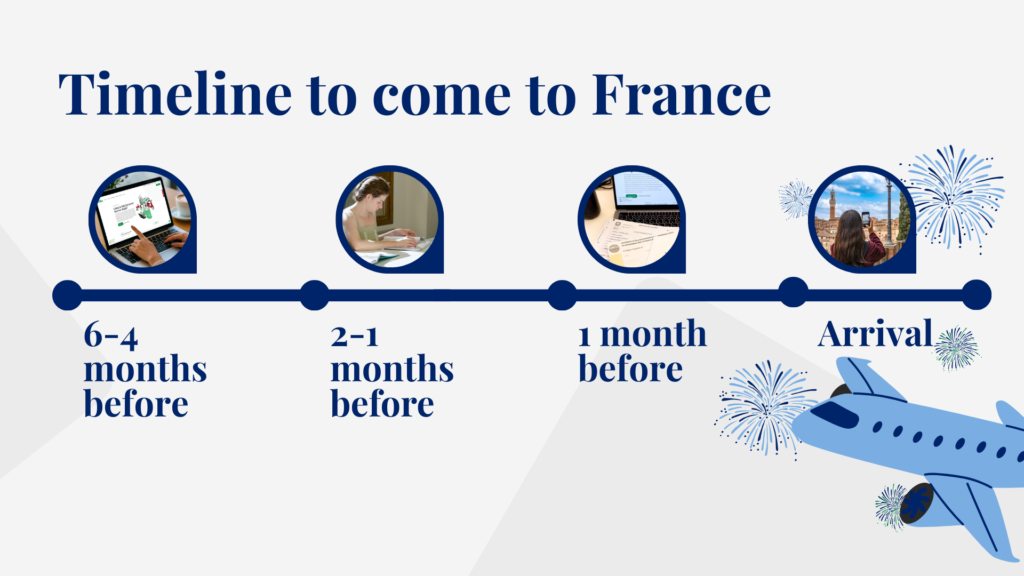Studying French in France boosts proficiency. Immersion in the language has been proven to help you progress quickly.
Read on to learn more about the benefits of studying French in France.
Native & Qualified Teachers
French language schools employ native, qualified teachers with proven teaching expertise.
All teachers are qualified and trained specifically for teaching French to non-native speakers. They have proven experience teaching abroad and/or in France to students from various backgrounds. They know how to teach the language to any student, whether your native language is a romance language very close to French or another language like Japanese, Korean, or Chinese, which do not really share common characteristics with French.
FLE Quality Label
The best language schools are accredited by Campus France and hold the FLE Quality Label. This label is awarded by the French Ministry of Education for excellence in teaching French to non-native speakers.
Schools are audited on five criteria: training programs, teachers, student services, premises and equipment, and management. Studying in a FLE-certified school ensures you receive the best education possible.

Visa-Compatible Programs
You can get a long-stay student visa to complete a language program in France. It is the best option for those planning to live and study in France long-term.
This visa allows you to live, study, and work in France for 1 year, with the option to extend your stay. You can work part-time (up to 20 hours per week), travel freely within the Schengen Area, access French health insurance, and receive housing allowance.
Flexible Programs
French language schools offer flexible start dates, course length, and intensity.
Most schools offer new start dates every Monday (except for complete beginners, who usually have fixed start dates). Students can study from 1 week to 1 year or more. Standard courses average 15 hours per week, while intensive courses typically include around 20 hours of classes per week.
See our language schools: https://gogofrance.com/en/language-schools-in-france/
Small Class Sizes
Classes typically have 10 to 12 students. This close-knit environment allows for personalized attention and better interaction with your teachers.
Teachers can focus on each student during class, correct errors in real time, and promote student interaction.
Personalized Support
French language schools provide close support with everyday life in France and with each student’s learning goals.
Many programs include 1-on-1 tutoring sessions with your teacher to provide personalized support as you learn French. Whether you are studying French to find employment in France, studying for an examination, or preparing to enter higher education in France, they are here to support you along the way and keep you on track with your goals.
Immersive Learning
Being completely immersed in an environment where you live and breathe French every single day will help you make fast progress.
During classes, you’ll learn real, practical French you can use immediately outside the classroom. Even if you are not actively learning, just by living in the country, you’ll get constant input without realizing it, whether it is reading signs or overhearing conversations. Linguists have shown that this immersive approach to learning the language is among the most effective for language acquisition.
Cultural Activities
Cultural immersion is an integral part of language acquisition. This is why French language schools offer monthly cultural activities to their students.
Some activities are free, while others require a fee, but you will always have something to do during your stay. The activities are often selected from the city’s and national cultural calendar to help students experience French language and culture in real-life contexts. Activities may include walking tours, friendly dinners, museum visits, movie nights, and more.
Structured Progression Path
French courses follow the CEFR (Common European Framework of Reference for Languages), the standardized framework that defines language skills from beginner to advanced.
The CEFR specifies what learners must be able to do at each level from A1 (beginner) to C2 (expert). It offers students a clear and universal way to understand their language level, making progress easier to track and compare internationally. Its structured pathway helps students set realistic goals and align with major French exams, such as the DELF/DALF or TCF.
Official Examination Centers
Some French language schools also serve as official examination centers for the DELF/DALF and TCF exams.
Students can prepare and sit the exams in the same place, providing the best environment for passing these language certifications. Schools often run dedicated preparation modules focusing on exam format, scoring, and skill practice.

How to study French in France?
There are many more benefits to learning French in France, such as receiving an official graduation certificate upon completing your program, but we can’t list them all here.
If you’re ready to take your French to the next level, we’re here to help! Our team is made up of former language students, so we understand your journey. We’ve been in your shoes, so we know how to support you and help make your dreams of studying and living in France a reality. Contact us to get started.





